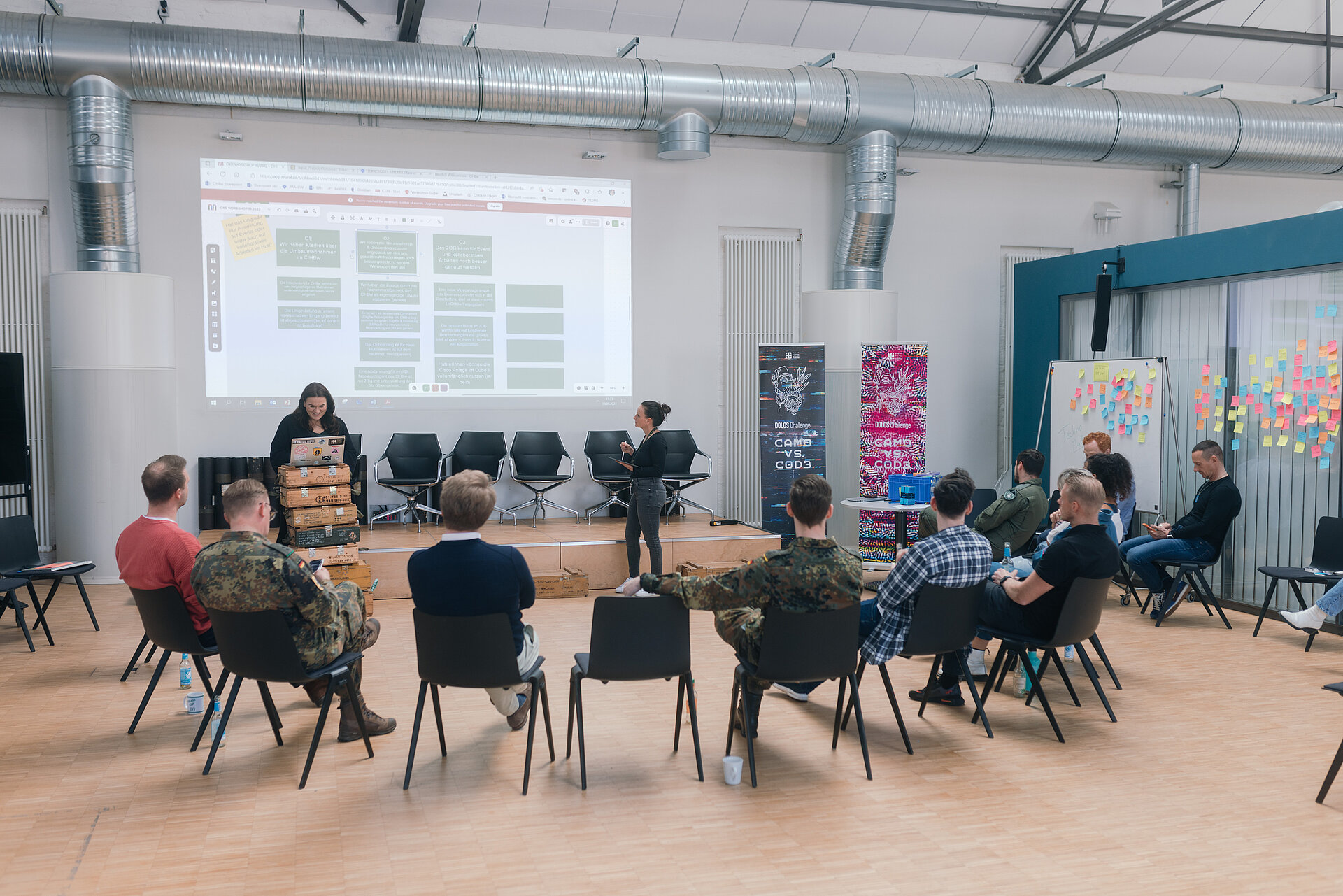
Operationalize administration in a modern way
What is OKR in the public sector? OKR is an agile method for operationalizing vision, mission and strategy. In a cyclical process, desirable goals (objectives) and measurable results (key results) are defined over a period of between 3 and 6 months.
The objectives are then achieved by implementing specific projects and tasks. We have adapted OKR for this use case by adapting it to the specific requirements that the framework conditions and working methods of public administration in Germany place on an agile method. We are convinced that agile does not contradict well-founded and legally compliant administrative action.
Rather, OKR can make work planning more effective and make the valuable contribution of each employee to the overall result of the unit, department or entire organization visible. Since market share or turnover cannot be measured variables and the (ministerial) mandate already specifies objectives, tasks and fixed guidelines for the fulfillment of the mandate, an agile method such as OKR cannot be applied on the proverbial greenfield site. It is precisely these small adjustments and pragmatic "tricks" that make up OKR and have enabled us to successfully apply this method for over two years now to ensure the fulfillment of the CIHBw's mission.
We are happy to share our knowledge and experience - open, pragmatic and solution-oriented
Our mission is to establish objectives and key results as a method in the public sector, thereby making administration more effective and at the same time increasing the motivation of all those involved.
OKR expertise from many years of practice
The OKR Forum is part of the Cyber Innovation Hub of the Bundeswehr (CIHBw). We are pioneers and consultants for the implementation of the Objectives & Key Results (OKR) method in the public sector. The experience gained from OKR cycles completed over many years, over 100 trained "OKR fans" and various publications on the subject of OKR show that it works.
Questions and answers on OKR in the public sector
-
OKR stands for “Objectives and Key Results” and is a goal-setting system that helps companies and organizations clearly define and pursue their goals. In public administration, OKRs can be used to improve efficiency and transparency in the implementation of political priorities and administrative goals.
-
The development of OKR in public administration takes place in close cooperation between managers, departments and employees. The objectives should be derived from the overarching political goals and translated into specific, measurable key results. It is important that the OKRs are realistic, challenging and have clear responsibilities.
-
The progress and results of the implementation of OKR are measured using the defined key results. The metrics should be clear and quantifiable in order to assess the success or failure of target achievement. Regular reviews and reports are important in order to make the status of the OKR transparent and to make adjustments if necessary.
-
The use of OKR in public administration offers several advantages. These include a clear focus on strategic goals, improved transparency and communication, better collaboration between departments and employees and increased agility and adaptability to changing conditions.
-
Yes, introducing OKR in public administration can pose some challenges. These include, for example, the complex organizational structure, bureaucratic processes and the need for cultural change. It is important to communicate the benefits of OKR, provide training, and encourage collaboration between stakeholders to overcome these challenges.
-
OKRs can be used effectively in militaries to pursue strategic goals such as improving operational readiness, strengthening leadership skills and promoting soldier development. By clearly defining goals and measurable key results, armed forces can target their resources and activities to achieve these goals.
-
The introduction of OKR in armed forces requires careful coordination with the existing hierarchy and chain of command principle. It is important that the OKRs support the armed forces' overarching strategic objectives and fit seamlessly into existing planning and reporting structures. Open communication and close collaboration between managers and affected units is crucial to ensure that the OKR methodology is successfully implemented.
Our OKR pocket map
Our OKR pocket card has proven to be a very useful tool for the preparation and ongoing process of an OKR cycle.
Simply request your digital copy here.
Have we piqued your curiosity? Are you interested in implementing OKR, looking for a sparring partner or just want to exchange ideas?










